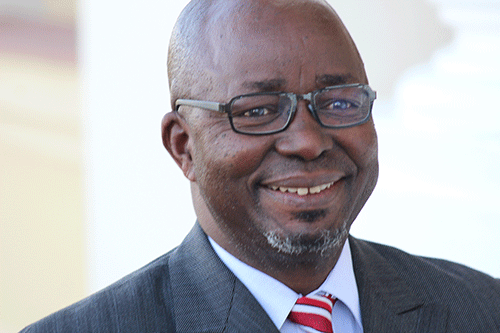Rally for Democracy and Progress leader Mike Kavekotora believes remedial measures are required to address high levels of inequality prevalent in the Namibian society before the situation reaches boiling point.
Speaking in parliament recently, Kavekotora said the South African apartheid regime took over from Germany from 1919 until 1990, and for the most part, they extensively enjoyed the economic spinoffs.
A similar trend, he said, is now visible in an independent Namibia, where the majority tribe and those with connections to the ruling Swapo are predominantly the beneficiaries of the greatest fruits of independence.
This trend, he said, has resulted in a disproportionate distribution of wealth and the allocation of resources.
“To a certain degree that explains why some people are swimming in a pool of poverty while others are flourishing beyond imagination,” he said.
Kavekotora was motivating his motion in the National Assembly, to evaluate and deliberate on the notion of One Namibia, One Nation and how it relates to various opportunities, equitable wealth distribution and resource allocation.
The motion seeks the indulgence of the August House to interrogate whether justice and equity prevail in an independent Namibia.
“Can we claim beyond any reasonable doubt to be a one nation in one Namibia?” questioned the RDP MP.
“Are we free from discriminatory practices similar to the ones levelled against blacks during the apartheid system or have we just replaced that system with another discriminatory system to achieve the same results?” He claimed the way economic opportunities are shared, the way resources are allocated, and employment opportunities offered is not congruent with the demographic realities of the Namibian population.
“The allocation of resources is skewed and disproportionate. It is obvious that some regions are being treated preferentially over others, a situation that can no longer be tolerated if we are to maintain peace and justice for all in Namibia,” he said.
He urged lawmakers to develop a proportional system for allocating resources, creating jobs, and distributing wealth, taking into consideration demographic realities and regional population distribution.
“The system of proportionality is not strange to our democracy. That is the system used by ECN in allocating seats in parliament after every election,” he said.
He said the same system is also been used in Parliamentary Standing Rules when selecting representation in various parliamentary committees. “A proportional system of representation can be cascaded from a regional level to a constituency level,” he said.
“We need equity in the appointment of SOEs’ boards. We need equity in the appointment of SOEs’ CEOs. Regional governors need to be appointed equitably. We need equity in the awarding of scholarships to students in institutions of high learning. We need a quota system to replace the useless resettlement programme. The country needs an equitable system in the army, the police, and the correctional service. We need equity in the appointment of directors and deputy directors in all government offices ministries and agencies.”
He said as it stands, the country is crying for a fair and equitable system because the current scene is not an ideal one.
In the absence of a fair system, Kavekotora said the country is running the risk of the 37% dominating Namibia politically, economically, socially and otherwise to the detriment of the 67% of the population.
– ktjitemisa@nepc.com.na


